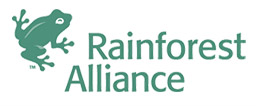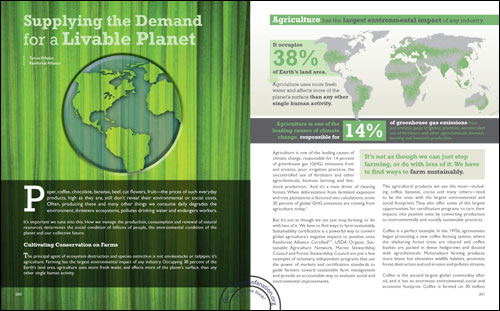Supplying the Demand for a Livable Planet
So much of what we eat on a day to day basis, as well as lumber, rubber, minerals and other commodities, comes from developing countries overseas. We never see the results of harvesting all these natural resources, but often other nation’s forests are clear-cut and rivers are polluted as the direct result of our overconsumption. Fortunately groups like the Forest Stewardship Council and Rainforest Alliance are making efforts to ensure we use natural resources in the developing world just as responsibly as we would expect here at home.
The Rainforest Alliance
 The Rainforest Alliance works to conserve biodiversity and ensure sustainable livelihoods by transforming land-use practices, business practices and consumer behavior. They believe that the best way to keep forests standing is by ensuring that it is profitable for businesses and communities to do so. Read more.
The Rainforest Alliance works to conserve biodiversity and ensure sustainable livelihoods by transforming land-use practices, business practices and consumer behavior. They believe that the best way to keep forests standing is by ensuring that it is profitable for businesses and communities to do so. Read more.
Read the Rainforest Alliance essay: "Supplying the Demand for a Livable Planet"

Endnotes & References
They seem to be in line with the rumors and speculations we've heard so far